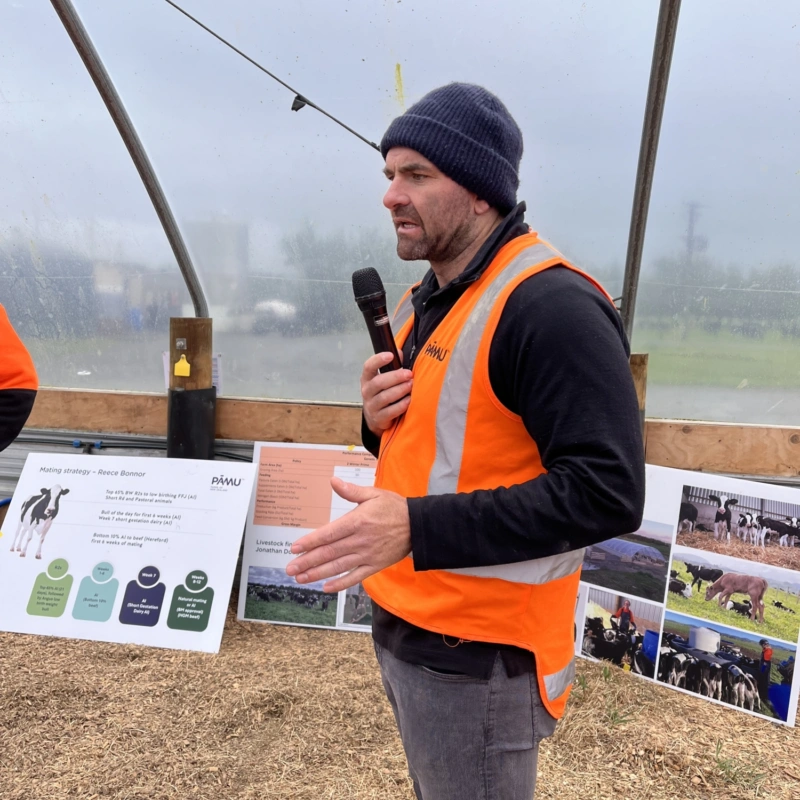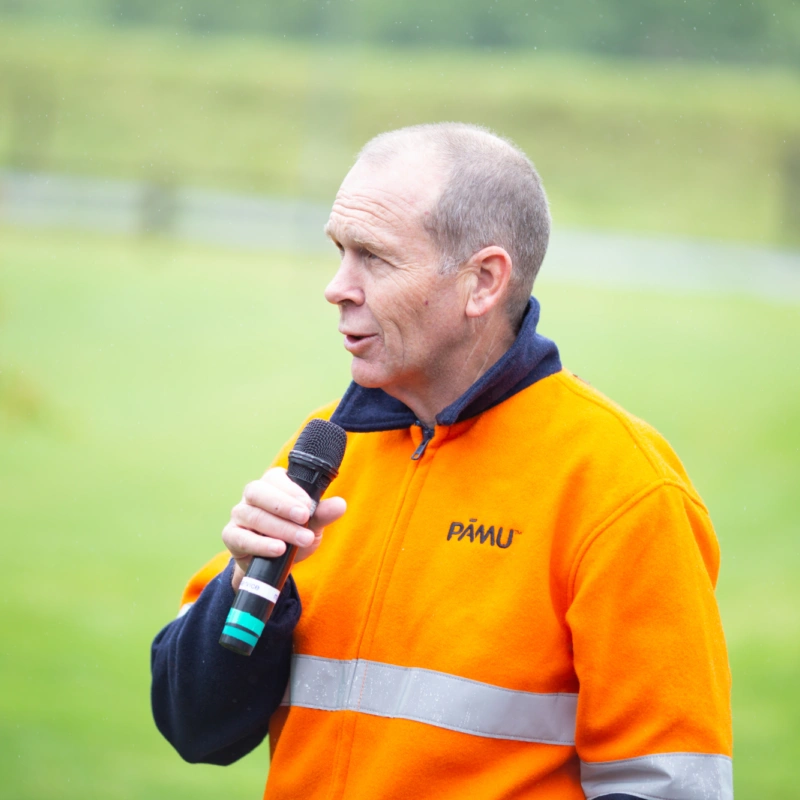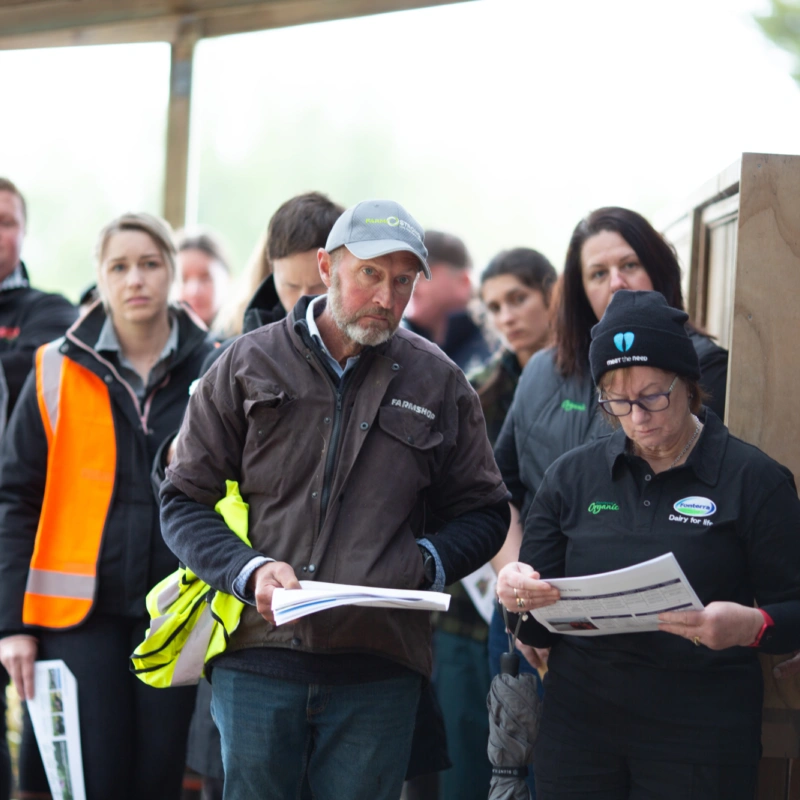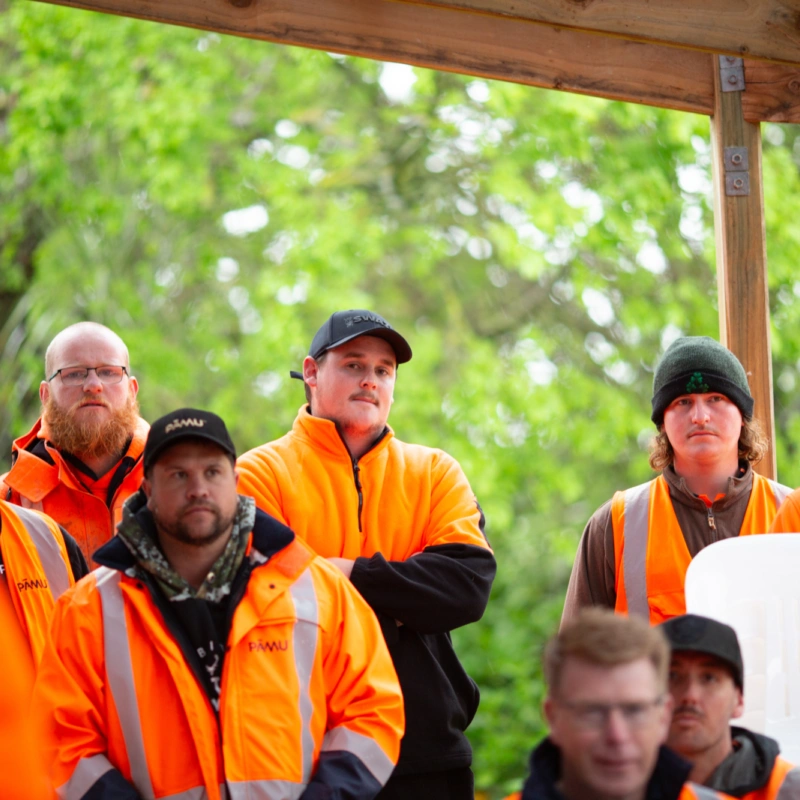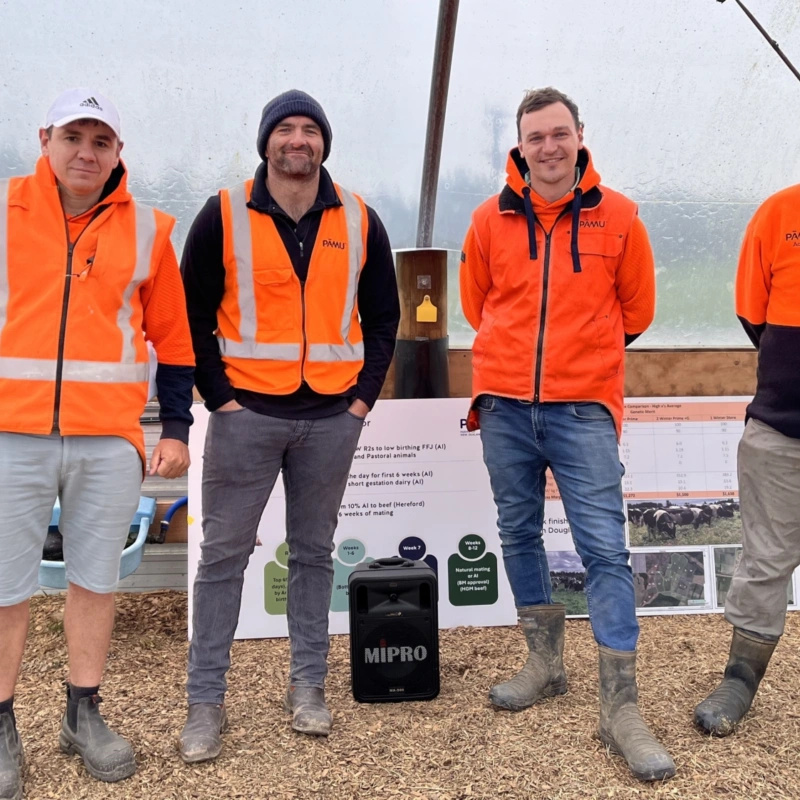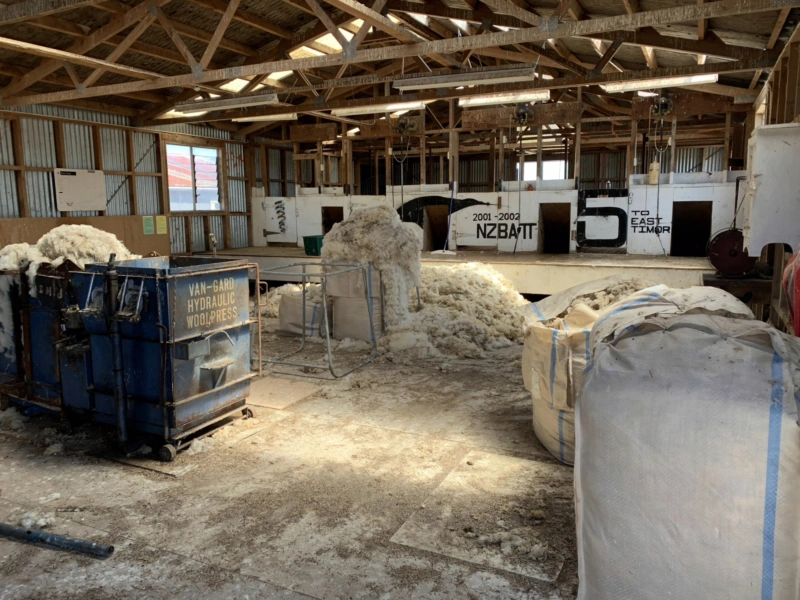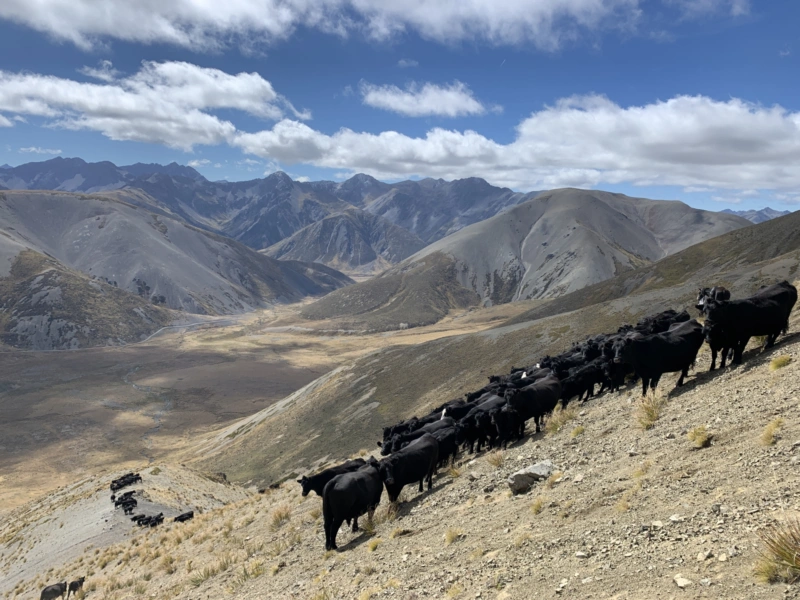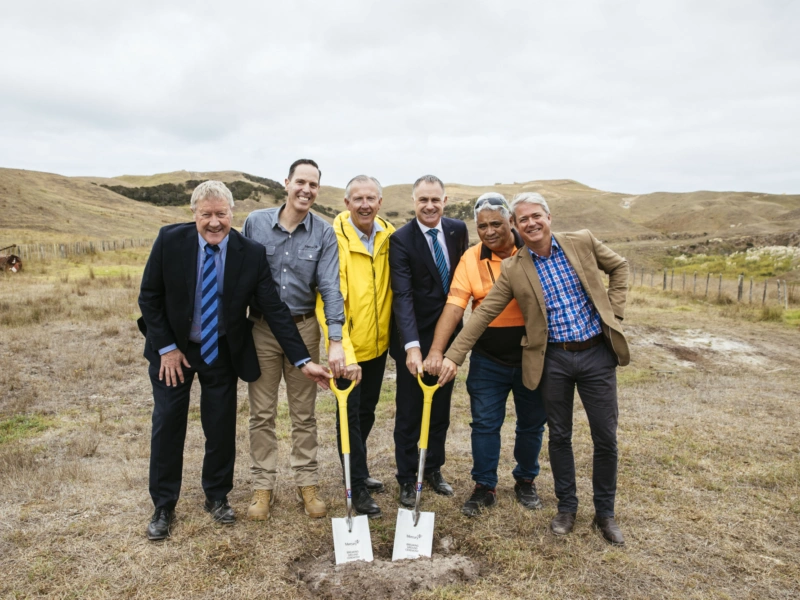Showcasing Organic Farming at Moutoa: Insights from Pāmu’s Open Day
On 30 October, Pāmu proudly hosted an Organic Farm Open Day at the Moutoa Dairy Complex in Manawatū, welcoming over 120 attendees, including MPs, industry representatives, local farmers, and members of the community. The event was a unique opportunity to showcase Pāmu’s innovative organic farming practices, sustainability efforts, and vision for the future of New Zealand agriculture.
The Organic Journey
Since 2016, Pāmu has been investing in organic dairy farming, converting farms to organic systems to deliver premium-quality milk while reducing environmental impact. Today, the Moutoa Dairy Complex is part of this legacy, spanning 4,190 hectares and home to 6,430 cows across 11 farms and three runoffs. The shift to organic farming has enabled Pāmu to lower its environmental footprint while maintaining commercial viability. Strategies such as reducing synthetic inputs, improving pasture diversity, and optimizing herd health underscore Pāmu’s commitment to sustainable agriculture. The Open Day provided a platform to showcase how Pāmu balances profitability with environmental stewardship, emphasizing our role as kaitiaki—guardians of the land.
Exploring Organic Practices: Leadership and Market Insights
Despite rainy weather limiting full farm tours, attendees gathered in the calf-rearing sheds for in-depth sessions led by Pāmu's knowledgeable team. These discussions provided valuable insights into the nuances of organic farming and highlighted our commitment to producing premium, environmentally sound dairy products.
Chief Executive Mark Leslie and Will Burrett opened the day by outlining Pāmu’s broader strategy and Fonterra’s organic market projections. They emphasized key goals such as:
- Harvesting more grass to improve feed efficiency.
- Reducing reliance on external feed for cost and environmental benefits.
- Enhancing milk solids performance across our organic farms.
- Improving mastitis management to support animal welfare and product quality.
Fonterra Organics added a broader industry perspective, sharing valuable sustainability metrics and market trend modelling that highlight opportunities for the future of organic dairy products and the sector.
Focused Discussions Across Key Areas
- Organic Compliance and Environmental Standards
In the Moutoa Complex Office, Josh Millard and the team highlighted how Pāmu adheres to stringent organic certification standards. Topics included:- Restricted use of pain relief and mineral supplementation.
- Minimizing reliance on chemical inputs like synthetic fertilizers.
- Implementing preventive health measures and limited use of pain relief or drenches.
- Preventive parasite management strategies to minimize drench use.
These proactive measures ensure animal health while maintaining certification and reducing our environmental footprint.
- Pasture Management and Soil Health
At Egmont Farm, Joel Peterson and his team demonstrated how diverse pasture species, crop rotations, and soil testing optimize forage quality. Attendees gained insights into how ryegrass, fescue, and other pasture types support sustainable organic farming.- Rotational grazing, diverse grass species (e.g., ryegrass and fescue), and soil testing to improve forage quality.
- Effluent spreading and solid separation to enrich soil and support pasture growth.
- Dairy Beef Integration and Herd Health
At Aoraki Farm, Sam Bunny and the team showcased Pāmu’s ambitious 2030 dairy beef strategy, focusing on integrating dairy beef into our operations with a target of rearing of 100% of calves born on dairy farms by 2030.- Calf rearing systems optimized for growth and welfare.
- The benefits of integrating dairy beef into farm operations, including reduced greenhouse gas emissions and improved productivity.
Why Organic Farming Matters
Pāmu’s organic farming systems prioritize:
- Reduced Environmental Impact: By eliminating synthetic fertilizers and focusing on preventive animal health, Pāmu achieves lower emissions and improved soil health.
- Herd Health and Welfare: Practices such as once-a-day milking reduce stress on cows, leading to higher body condition scores and better reproductive outcomes.
- Premium Production: Organic milk is in demand globally, supported by certification to meet stringent market standards like USDA, EU, and IFOAM.
As noted by Cleo Te Kiri, Dairy Business Manager for Organics:
"Through learning and passion, we’ve achieved results equal to or better than conventional systems while aligning with our values and environmental goals."
A Collaborative Effort for the Future
The Moutoa Dairy Complex serves as a case study in how organic farming can achieve profitability alongside sustainability. By leveraging innovative practices, Pāmu is not only delivering premium products but also contributing to the future of New Zealand agriculture.
As noted during the event, Joel Peterson, Moutoa’s Business Manager, emphasized the importance of weekly planning tools like feed wedges and stock performance monitoring to optimize operations. This data-driven approach helps Pāmu exceed best practices in both animal and pasture management.
Thank You to Our Community
We extend our heartfelt thanks to all who attended and contributed to the success of the Open Day. The event was a testament to collaboration across the farming community and highlighted the potential for organic farming to balance environmental goals with commercial success.
To learn more about Pāmu’s organic journey and ongoing initiatives, explore our resources online.
